
 |
|
|
Click bars for Navigation ---- ---- Published Books by William Hermanns - Click cover image for it's webpage. 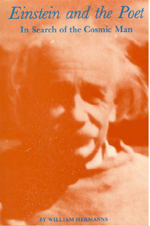 --- 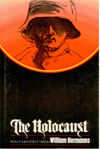 Out of print books available - email us Translate page
---
Like our facebook page WilliamHermanns to get website update notices and some uploaded poetry that talks to your soul. --- Please help support this website. We'll continue to upload more gems from the archives. See Contact Page to communicate with us. To My NeighborSeelentränenNavigationContact / Kontakt |
|||||||||||||
|
|
EssayGroup Consciousness and WarThe author composed this essay in 1975 while living at Stanford as a Visiting Scholar to the Hoover Institution for War, Revolultion and Peace to possibly include in his book manuscript Incense and Slaughter. Essay Navigation by Section (set about every 100 Lines):
1.
Group Consciousness and War It took me 60 years of experience to discover and formulate a system of sociological laws about group consciousness which explains the unbreakable chain between human nature and war. In the process the question continually welled up which I had put to the famous Dutch evangelist, Corrie ten Boom, who also"" was persecuted by the Nazis and survived the Ravensbruck con-centration camp, "If man is so hopelessly wicked, why did God not make a better man?" She replied, "You dare to criticize God! It is up to man's free will to cooperate with God's plan to change human nature." I feel singularly adapted to tackle this problem of war and human nature, because every thought I put down is not based on abstraction, but on the experience of two world wars, the first at the front line for Germany, the second on the American side. As one of the few survivors of the battle of Verdun, I am prompted to write this book since my experience has now been put in relief by my personal observations of the Kaiser and Hitler, and, in America, Roosevelt, Kennedy and Nixon. I also had personal contact with Churchill, Schweitzer, and Einstein. Above all, as an educator for 50 years, I was exposed to the anonymous reflection of cosmic power on earth: youth. I can truly say that in my patriarchal age I feel privileged by Providence to record and reflect on what I have discovered as a small contribution to all those valiant seekers, theologians, psychologists, philosophers and economists, who want to save the world from another holocaust. My aim is not as much to be acknowledged, as to be discussed, because there is no absolute truth. The cosmic spirit, often called God, flows, and what is true for you may not be true for me. All that exists exists as a manifestation of cosmic evolution. But nothing exists without laws; material laws being the reflection of spiritual laws. During fifty years of searching for a way to pull human nature away from its corruptive tendencies of destruction, I discovered that religion has failed, that humanistic teachings have failed, and that equality of living standards has only succeeded in subduing human nature but not in sublimating it. The tragic question is often asked, "How is it possible that religion has failed?" Are not the western religions imbued with the teaching of the Bible? There has never been a book on psychology, sociology, or philosophy that so unremittingly exposes human nature and gives remedies for overcoming it as the Bible. This extensive failure of religion brings us to the question: What is human nature? Human nature is the effect of man's consciousness restricting itself to only the three- dimensional level of existence and using the five senses to select what it sees, hears, feels, smells, and tastes for its own prosperity. At this point, human nature is in constant war with itself as well as with religion and its teachings, whether through the Bible, the Koran, Indian scriptures, or other spiritual books, because it is blocked from seeing that man lives in many more dimensions than those of the material world. The question arises: Why is it that religions never accomplished the removal of this block, thus permitting the expansion of consciousness which would, of course, not change his nature into something else, but rather transform it? And another question is due. Why have religions ignored this verdict: "If you are of the world you will perish with it"? Indeed, this verdict is con¬tained in the first symbolic encounter of Adam and Eve with the serpent and repeated through every mouth from the prophets to Jesus. The answer is found in basic sociological laws which I have discovered after searching three generations for the reasons of the failure of religion. These laws touch the root cause of war, and we will see them exhibited in detail concerning Hitler, the Kaiser, and Pope Pius XII. The basic law is that individual conscience and conscious¬ness falls prey to the power of a group consciousness. As a lynch mob develops a morality, an action and an identity of its own, which simultaneously is composed of each member and yet overpowers the individual, so, too, a group has a conscious¬ness which imprisons the individual. From the power of the group consciousness emerge acts of horror and terror incon¬ceivable for an individual. A group consciousness needs an out-group, or an enemy, to maintain itself, and it develops an elitist better-than-thou attitude which applies to the out-group. No group or no movement can exist without an out-group, nor without a condescending attitude. The group consciousness has an overt bait and a covert hook. The bait attracts the members, and the hook keeps them by manipulating the baser drives of human nature. This shall become clearer as we proceed. Even religious groups, church groups, Bishops* conferences, the Curia and the World Council of Churches, operate under the laws and limits of a group consciousness. A religious group consciousness reflects the average member’s atti¬tude toward his faith. The official leader and representative of the group cannot change this attitude without running the risk of expulsion to an out-group. When the German Cardinals under Hitler made speeches of loyalty during Hitler's wars, they put the fatherland higher than Christian ethics. No group consciousness escapes the law that it reflects the consciousness of its average member. If it does not do this, it splits or dissolves. An outstanding example are the Catholic orders, among them the Franciscan order which split into three branches. 2. If group membership contains such potential danger, what shall man do? Keep away from all groups? Certainly not! Man is not an island and it is his nature to communicate. But what he must do is to become thoroughly familiar, not only with the overt bait, but the covert hook in any group. Any group consciousness puts man's individual consciousness on the bed of Procrustes, where his consciousness, in part or in totality, will be cut off. Where his consciousness has aberrations or frustrations, those will be abrogated to make him feel fulfilled. No group, even with the highest religious development, can separate itself from the three-dimensional level where it is active. We are dealing here with the sad events of our time which place in the mouths of our youth the question, "What is the use of living, anyway?" Consideration of the group conscious¬ness of the Catholic and Protestant churches will show the effect on moral attitudes of a religion which is not only in the world, but also of the world. It is symptomatic that in 1933 Hitler could boast that "priests will betray their God to us. They will betray anything for the sake of their miserable little jobs and incomes . . . Why should we quarrel? They will swallow anything in order to keep their material advantages." Hitler said, "I am accused of persecuting the Jews, but I am only a good Catholic." What Hitler alluded to was the anti-Semitic group consciousness of the Catholic church. How did this develop? Let us pause for a moment and watch the effect of the better -than-thou attitude as it has operated in the history of the church. As a result of this history, Hitler could point out that the yellow star was not his invention, but a Catholic one from the Middle Ages. Indeed, in the middle ages the Popes' group consciousness forced them to have the Jews wear the star or a special hat and other insignias to set them apart significantly, to keep them as an out-group by means of identification helped prevent Jewish-Christian marriages. Referring to the "final solution" of the Jewish question, Hitler was said to have cited the example of the Catholic Church when it put the Jews to the stake during the Inquisition. It is essential to learn how religious groups come into being and how they of necessity walk the path of war from the very beginning of the establishment of the group characteristic, better-than-thou. Let us take a look at the Bible. When Paul wrote as the first documentary witness, he honored the Jews and Judaism, as did Mark. With the distance of time, facts blur into legends. When the author of Matthew's gospel wrote, at least a generation after Jesus' death, a group consciousness filled with the thoughts of converts from heathen cultures had devel¬oped a better-than-thou attitude toward the Judeo-Christians, who more and more became the minority in the movement. Thus Matthew indulges in ugly pictures of the Pharisees who pray on the street-corner to be seen by all, but he praises the poor, who pray in their private chambers, and are the only ones saved. The spiritual message of Matthew's Gospel is revealed in spite of these distortions, but the better-than-thou attitude bore danger and evil-tasting fruits. There are paintings of a richly-robed Pharisee praying and beating his breast, while an abject tax-collector sits in the corner with his hands folded. The historical truth, of course, is that the Pharisees in Jesus' time were scriptural people, many of them holy, al¬though of course they had their human nature, while the tax collectors were men in the service of the Roman military estab¬lishment and utterly despised by the Jews for their traitorous services to an occupying power. Perhaps a generation later, John wrote his gospel. Here the group consciousness with the better- than-thou attitude has strong anti-Semitic tones, according to the sociological law that the strength of the in-group grows in proportion to the strength of the out-group. The Jews became so harassed that they were soon considered as outcasts in the true sense of the word. At the time of Constantine I, during the early fourth century, Christianity was given its first official protection by an Emperor in exchange for blessing his sovereignty and the Christian youth who fought in his armies. Somewhat later, St. John Chrysostom, a violent preacher against the Jews, wrote, "The synagogue is a bordello . . . a hiding place for unclean beasts . . . never has any Jew prayed to God . . . they are possessed by the devils." His writings were later refurbished to build the anti-Semitic arsenal of Hitler. An important figure in the struggle between church and state was Justinian, who practiced caesaro-papism, the belief that the church should be dominated by the state, and there¬fore has to support and sanctify the wars and military efforts of the ruler. Then came the Crusades, from the 11th to the 14th centuries, in nine of which the participants were promised full penance; Bernard of Clairvoux promised the crusaders a direct route to heaven. Even children embarked on the blood-stained road to free the holy sepulcher from the unbelievers. Thousands of them perished of hunger and disease. Then came the religious wars among Christian nations themselves, the Thirty Years War, those of Charles V, and the wars which earned Mary Tudor of England the title of Bloody Mary. Nor have the Christian generations forgotten that the Jews, having killed Christ, are the "accursed enemies of God." In my younger days, the Catholic Rhineland was beset by the rumor that the dead body of a young Christian boy was found in a Jewish stable near Xanten, and that the Jews needed Christian blood to bake their Passover bread. A similar story was told, over 600 years earlier in England, of a ritual murder in Lincoln of an eight-year-old boy named Hugh. Supposedly the Jews had crucified this boy and disemboweled him. That the body of the boy was later found drowned in a well did not hinder the promotion of the boy to the rank of a saint and a martyr. This blood-thirst, of course, has been handed down from the beginning of the formation of Christian group consciousness. When a Protestant pastor in 1958 involved in the trial of SS Einsatzkommandos at Ulm, Germany, was asked by the judges why he had been silent about atrocities committed against the Jews, he said, "... these acts were the fulfillment of the self-condemnation which the Jews had brought upon themselves before the tribunal of Pontius Pilate." A year later the Dean and Chapter of Lincoln Cathedral, as if in protest against what had transpired in Germany, removed the legend of St. Hugh of Lincoln and put up a notice, "Trumped-up stories of 'ritual murders’ of Christian boys by Jewish communities were common throughout Europe during the Middle Ages and much later . . . Such stories do not redound to the credit of Christendom and we pray 'Remember not, Lord, our offences, nor the offences of our forefathers.'" 3. Let us take another look at the formation of an anti-Semitic group consciousness of the Christian. What made the author of Matthew's gospel, who had written his gospel from oral and written sources many years after Jesus had died, write this sentence, "From the mouth of the Jewish people: His blood be upon us and upon our children," which turned the Jews into the scapegoat and whipping boy of Christendom? His¬torians doubt that Jews ever had cried any such words. They also doubt the Sanhedrin trial that preceded Jesus * judgment by Pilate, as it is religiously highly improbable that the Jewish hierarchy would convene on a day which prepares for the Sabbath, the most sacred religious event. It is also highly improbable that Pontius Pilate, with his brutal contempt for the Jews and his loyalty to Caesar, would have deigned to allow him to be forced into a judgment by screaming Jews. Furthermore, thousands of Jews, followers of Christianity, honored him as a prophet, and the majority of Jews did not live in Jerusalem, but were scattered over the Mediterranean basin. Even if Jews had clamored for the blood of Christ, how many had gathered there in front of the judgment seat? How do such legends come to be made? Through hearsay handed first by words, then in writing. In the Spanish Inquisition many Jews were burnt at the stake. In Russian pogroms thousands of Jews were murdered, and after 1905, the pogroms were government-inspired to direct the revolutionary forces <5f the starving masses toward the Jews and away from the exploiting aristocracy. Then came Hitler, who boasted that he was an anti-Semite and hence a true son of the church. This out-group law manifests itself not only in petty anti-Semitism among the Christians, but also in unexpected ways. In Constantinople in the 1950*s when I addressed Turkish students, I was told not to speak of Christian civilization, because the sex orgies and the murder of women and children by the Crusaders were not yet forgotten. A demonstration of the immutable law of group conscious¬ness came when Hitler intimated that he would have chosen the Catholics as the enemy of his goals and not the Jews. It was his plan to break the power of Rome and confiscate its wealth in Germany. Indeed, Goebbels began a damaging campaign against the Catholic religion by spreading immoral stories about monastic orders. Soon, however, the ghastly trials and persecutions were stopped since Hitler could not fight his wars without some two million Catholic soldiers. Needing an out-group in order to unify his in-group, he not only declared the Jews as enemy of the Thousand Year Reich, but bundled them up with the Communists, Social Democrats, Democrats, and pacifists. Hitler is a master example of the working of sociological law, but so also are the religious leaders. If they had not been of the world as well as in the world, this question of the young generation could never have been asked: How could Nazi atrocities have been committed unless the spiritual leaders provided no effective opposition to Hitler? More than 32 mil¬lion Germans, (over 40% of the population), were Catholic. Statistics reveal that as late as 1939, one fourth of the S.S. were practicing Catholics. William Temple, Archbishop of York, later of Canterbury, spoke to me once at King's College in London, about Hitler’s connection with the church, stating that man is repressed by forces which make even religion materialistic, especially Christianity with its emphasis on God becoming flesh. Indeed, when we read about man in the Garden of Eden, the story seems to have only one purpose, to show God’s plan of freedom for man in the midst of a concrete existence. This freedom is strangled by group consciousness. Group morals are determined by power strategy, not by virtue. Since there is no power without pos¬session of land, the existence of a movement is conditioned in relation to land. When the Communists started the Russian Revolution, they were not so much interested in killing off the land-owners, as to confiscate their land. An important part of group consciousness is the drive for status. Status consciousness feeds on symbols like honor, the flag, freedom and equality. In W.W.I, my General told us, "Pull down the Tricolor from the Cathedral of Verdun, and hoist the black, white and red." The status drive of the French Revolution smashed the castles and had the battle cry, "Liberty, Fraternity, Equality," but in truth, the third class bourgeoisie, fighting the aristocracy and their allies, the Church, rallied under the slogan, "Get up so we can sit down." The status drive in Communist society reveals human nature with its irrepressible character. I know an Armenian, who, dissatisfied with the Western capitalism in Egypt, immigrated to his homeland, part of the U.S.S.R., full of Communist ideals and hopes. He mentioned the similarity of Christianity and Marxism to some neighbors, and subsequently was charged with preaching bourgeois Religion. Under Stalin, he spent five years in Siberia separated from his wife and two children. Though in the post-Stalin era he was a lecturer in physics and nutrition at the University of Armenia, he defected three years ago to the United States. He told me of scandals where a functionary no sooner was in power, than he had luxury and servants, and wanted to live like a king. "Alas, Professor Hermanns, the perfect society needs first perfect people. Man must be reborn as Paul tells us." 4. How could it be otherwise? Even children play king of the mountain, and resent a lower role if there are roles of status to be had. The status-drive, often expressed in uniforms, medals and titles, is stronger than death. The Bible describes the status drive vividly. Whenever there was an invasion in Palestine, the peasants remained, for their work and sweat was the same whether they were ruled by the Syrians, the Persians or the Romans; but the members of the ruling class fled, and preferred a life as vagabonds in foreign lands to being relegated with less status. In France I have met hundreds of aristocrats from Russian society, who lived as refugees rather than renounce their title and privileges and become common people. A Russian prince who was a chauffeur told me that his brother was in jail for cheating in gambling, but that when he came out he was still a prince, and no questions were asked. A cousin of the last Czar survived by selling her jewels. When she remarked that she might soon be reduced to begging, I asked, "Wouldn't there be the possibility of going back to Russia? You speak six languages; you could teach." She answered, "A woman of my station could not do that." Kerensky said once in a lecture that the aristocrats would rather go into exile in rags than to serve as a peasant or worker in Russia. He stated a sociological fact that has been crucial in the history of wars: a group consciousness deter¬mined by inherited titles is closer to the group consciousness of the titled enemy than to that of the untitled compatriots. The Russian aristocracy in rags have no desire to associate with the Russian peasant or worker. The German aristocratic officers and the Crown Prince gave an example when they provided special, chivalrous consideration to French captive officers, and looked after their needs as brothers in rank, if not in arms. In short, they fed them with wine and tidbits from their own table until a fitting transport was organized for the officer camps in the rear; meanwhile, their own countrymen, the German soldiers, in the winter of 1915-16, had nothing but black bread and rutabagas. This stronger affinity of group consciousness by status than by side was well observed by Lenin. He despised social reforms by gradual and constitutional means, and emphasized an immediate and violent revolution. As young Communists told me, the privileged class would rather lose its head than let go. Lenin knew the resistance of man's nature to change. He knew that in the face of danger, man would prefer to be the ostrich than to face conditions which would lower his status, even if they let him survive. This dangerous status drive is nurtured by the sex drive. It garbs its chosen role in society in gold and silver. Even the barbarian in bearskins wears primitive jewelry to show his belonging to the ruling in-group. The silken robes in the Renaissance were often padded to emphasize masculinity befitting the rank. In my time the riding breeches of the officer were carefully tailored to emphasize the muscular strength of the thighs and groin. The shoulders were also padded to express, as a general in my officer training course said, "The German male in his glory." That in W.W.I, we called the Big Bertha Cannon a spitting penis that burst the Cathedral of Rheims, was more than a joke. It was the mentality of the German warrior arch mind. The statue Germania, in armor with sword and shield, and her big breasts, illustrates the connection of sex and status. As a young boy when I traveled on the Rhine with my class, our teacher put his monocle on his eye and pointed to the monument, "There is the symbol of the German mother, especially of the Empress with her six sons all in uniform." The question is what can we do to change this human nature with its status consciousness so fraught with destruction? Let us consider that human nature is composed of an ego conscious-ness and spiritual consciousness. This ego aspect of man is an automatic nature that reacts on sense perception, of which the eye is most dominant. It builds a rational consciousness in order to idolize its relationship to the environment. The ego, or mechanistic nature, is concerned with the survival of man as a physical being and operates solely on a three-dimen¬sional level. As man matures, his ego consciousness collects information and sorts it into patterns. The most frequent sources of this information are the immediate groups in which the person grows up, the family, school, church and social groups. In the family the craving for status is watered like a fragile plant with the question, what will you become? This drive for status starts to influence the personality when the child enters school, because there is competition complete with elbows and fists. The child becomes aware of existing in-groups and out groups, aware of three instincts, survival, sex and self-assertion. Since in most cases the child has a roof, a bed, and a table to eat on, the two instincts, sex and status, manipulate him through his school years. Whatever he may have learned, one notion will stick in his memory as long as he lives, the importance of joining the group. He will have learned the difference between the hammer and the anvil, so that walking through life, he will intend to be the hammer. In that society which absorbs and acknowledges him, he will soon discover a group, or he will found a group, that assures him status. Our maturing man or woman will experience the interaction between his consciousness, craving for status, and that of the other members. Whether it is a religious group, a labor union, a military unit, or any fusion of people with the same interests, up to the national or international level, there is a group consciousness not only as a summa summarum of the consciousness of the members, but also of super¬human status which manipulates more than it is manipulated by the members. There is an increase in momentum much as coils increase an electric charge. This momentum is the unknown quantity of the group consciousness, that fed by the better-than-thou mentality, rises from village to city to nation. 5. Every century, as long as nations have existed, has seen wars, innocently germinated in groups beginning at the family and school level. Why is it so difficult, asks pacifism, to alter this group consciousness, whether civil, religious, or military, when it is geared for war? Group consciousness blinds man to the fact that he has escaped from himself into a prison. Is there no way of self-awareness? Man must become aware of his consciousness, of the manifestation of his subjective ego with all its spiritual potentials. Does man have the possibility of stepping outside of his human nature as an observer might watch a stage where a drama unfolds? Of course he has. This is the crime of the school, of the family, or whatever the unit may have been, which helped him to discover his urge for status: not to have taught him that he has to consider the totality of his human nature, including the spiritual. Then it is a matter of his free will to decide whether or not he will only develop as a mental muscle the mechanical consciousness dealing with what he hears or feels, smells or touches, or include the spiritual consciousness which helps him discern that his body is not inert matter, but endowed with cosmic energy which enables him to know himself at the truest, fullest level. He will then find himself in a constant motion of attraction and repulsion when he accepts the tools given him by his automatic or material nature to become something in the three-dimensional level. He will find that he is constantly on a flight from himself and his environment, neither of which he can change or master. He will have discovered that joining a group for the sake of status puts bars around his haunted self, and only sets him free when he does the group's bidding. The man who wants to escape his ego nature is the man who perishes in it, for the ego becomes his master. The man who faces ego nature will see through it, revealing his whole self, including his spiritual nature, making ego nature his servant. Whether man wants to dwell in his limited ego nature depends on his free will. This then may be stated as the law discovered by my methodology, which is valid for me along with the others I have pointed out, because they are essential to explain man's group-joining to satisfy the craving for status induced by his mechanistic mind. Man can only change his consciousness by his free will. Man is the only entity that chooses how to construct his consciousness. Note: This essay was written in 1975 to possibly include in the author's book manuscript Incense and Slaughter. Navigation by Section (set about every 100 Lines):
|
Please support
our sponsors. Click on image to be directed to their website ~~~~~~~~ 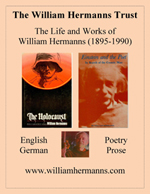 ~~~~~~~~  ~~~~~~~~  ~~~~~~~~ Norton & Holtz Business Solutions  ~~~~~~~~  ~~~~~~~~ 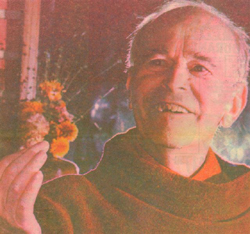 ~~~~~~~~ Published Books below: Click cover image for it's webpage:  Available at Amazon. For Hardbacks Contact us. --- 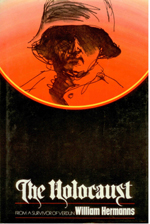 Inquire on out of print books ~~~~~~~~ |
|
||||||||||
|
|
|
|
|||||||||||
|
Prose and Plays |
|
Poetry |
|
Events |
|
Website Info |
Website © Copyright 2011-2022 by Kenneth E. Norton Articles by William Hermanns (c) by William Hermanns Trust |
||||||